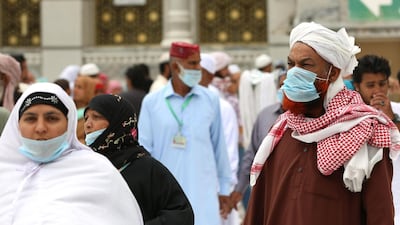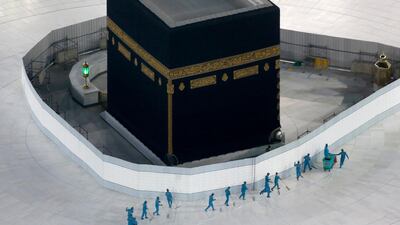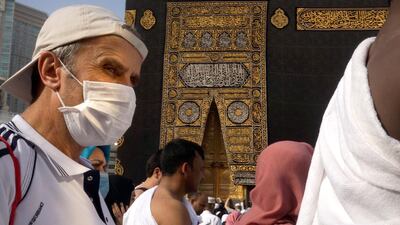Saudi Arabia suspended all international flights for two weeks from Sunday as it steps up measures to deal with the global spread of coronavirus.
The state-run Saudi Press Agency quoted an interior ministry source as saying that all nationals and residents stranded outside the country or asked to quarantine when they return to the kingdom would not be penalized for missing work or education as the time will be considered an exceptional official holiday.
On Friday, Saudi Arabia announced a further 24 cases of coronavirus, officially called Covid-19, bringing the total to 86 with one recovery.
Fourteen of the new cases were Egyptian nationals.
There are more than 132,000 confirmed cases in 123 countries and had already hit the "tragic milestone" of 5,000 deaths, the World Health Organization said on Friday. An estimated 65,000 people who had the virus have recovered.
It comes after the kingdom shut off all entry and exit from the province of Qatif on March 8 as most of the domestic cases were in the area.
However, a number of other cases have been found in transiting passengers or foreign nationals outside the western region.
In Qatif, worshippers went online to listen to sermons, families stocked up on groceries and shoppers bought hand sanitizers and masks as they adjust to live in isolation from the rest of Saudi Arabia.
The government assured residents that although most businesses and government offices would close, shops would still trade, hospitals and clinics operate as usual and supplies and food would be transported as normal.
Vigilance against the infection appears high.
Abu Ali and his family watched a religious sermon on their mobiles instead of gathering with other worshippers.
Last Monday marked the Shiite Muslim religious commemoration of the death of Sayida Zaynab, the daughter of Imam Ali, considered the father of Shiite Islam. Husseiniyas, Shiite religious gathering places, were empty for the occasion. Many of the eastern region’s largely Shiite community watched services online like Abu Ali.
"Everybody was on their phones watching YouTube channels," Abu Ali told Reuters last week.
In several towns of the region, streets and markets were still bustling. One vendor gutting fish wore a face mask, while his colleague did not.
"Things are normal in Qatif," a 59-year-old man who identified himself as Abu Hussein said, adding that his daughter continued her medical studies remotely like many students throughout the kingdom where schools have been closed.
"The only thing is that masks and sanitizers have disappeared from pharmacies," he said.
As the measures came in, there was a rush to grocery shops by residents that went on until midnight. One said he had stocked up on meat, vegetables, bread and water.
"On day one, people were a bit anxious. But since then everything is back to normal ... People understand and accept the situation," Abu Ali said.
But for local farmer Jassem Al Jabroudi, he worries what the travel restrictions will mean for his livelihood. His farm, where he raises chickens sheep, camels and grows onions and beans, is located around 65km outside the quarantine zone.
"I have seven workers on the farm entrusted to my care and I cannot go see them," he said. "How will I get my livelihood?"
But others saw a silver lining in the measures.
"We needed more time to spend with our families," said a 30-year old woman, who asked not to be named.








